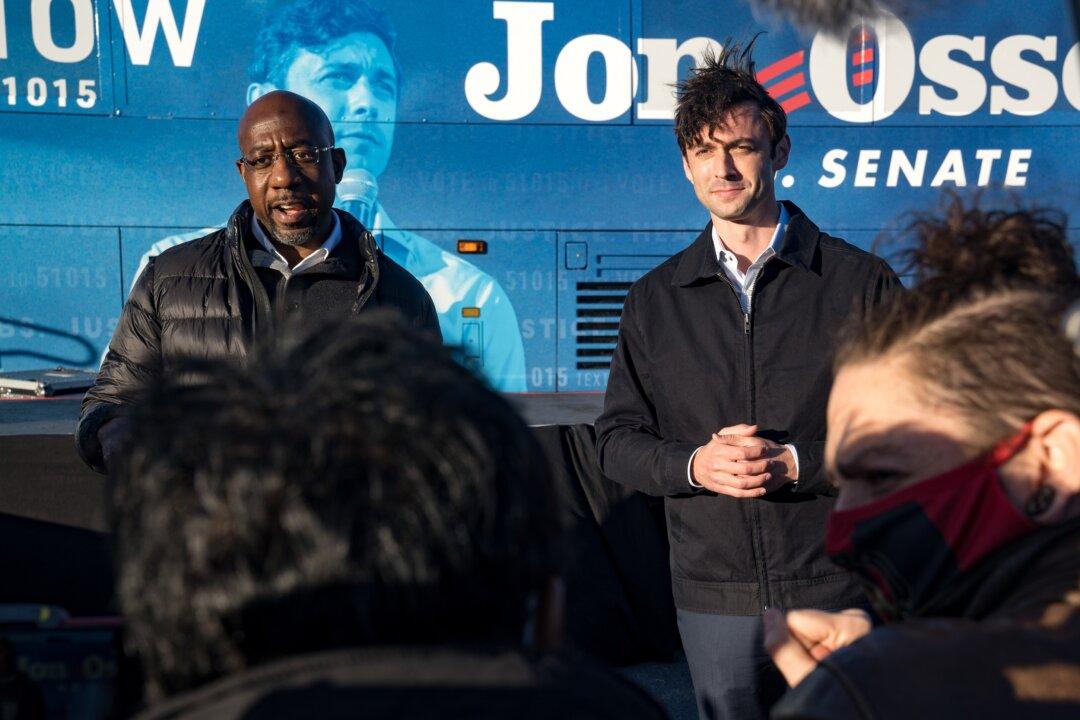Democratic U.S. Senate candidates on Monday projected confidence they'll emerge victorious in the upcoming runoff elections, as they prepare to campaign with Democratic presidential nominee Joe Biden.
“I can’t wait to get to Washington, D.C. as one of the next two United States senators from the state of Georgia,” Raphael Warnock, a pastor who is one of the candidates, told a rally in Atlanta.





